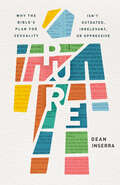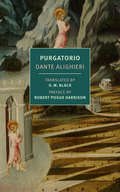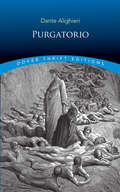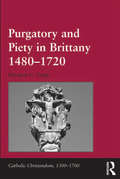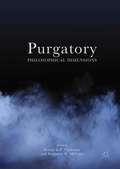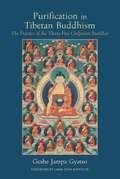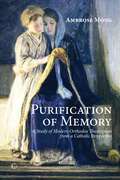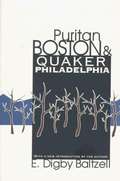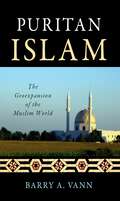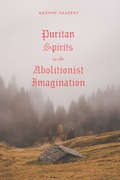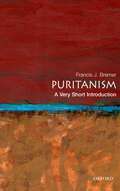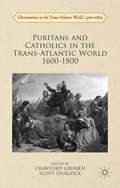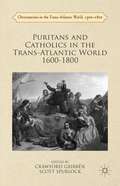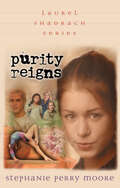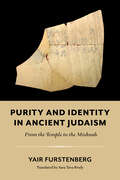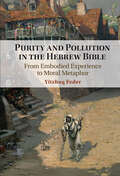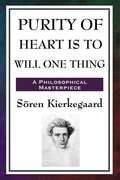- Table View
- List View
Pure: Why the Bible's Plan for Sexuality Isn't Outdated, Irrelevant, or Oppressive
by Dean InserraFew things bring more immediate scrutiny and impassioned angst among young adult Christians today than hearing the words &“purity culture.&” Serious flaws from purity culture deserve to be scrutinized, especially given its lasting negative effects on some raised in the movement. Many Christians today reject the movement—and all that it stood for—wholesale. However, we can&’t ignore the clear sexual ethics of the Bible. Pure dives into the big picture of God&’s design for men and women regarding sexuality, and seeks to reclaim one of the clearest teaching in the scriptures: the call to sexual purity. While purity culture gets the truth right, the approach and gospel elements it espouses are often wrong. Let&’s not throw the baby out with the bath water, but rather celebrate God&’s great design for marriage and the loving boundaries he has put in place for our joy, protection, and flourishing.
Pure: Why the Bible's Plan for Sexuality Isn't Outdated, Irrelevant, or Oppressive
by Dean InserraFew things bring more immediate scrutiny and impassioned angst among young adult Christians today than hearing the words &“purity culture.&” Serious flaws from purity culture deserve to be scrutinized, especially given its lasting negative effects on some raised in the movement. Many Christians today reject the movement—and all that it stood for—wholesale. However, we can&’t ignore the clear sexual ethics of the Bible. Pure dives into the big picture of God&’s design for men and women regarding sexuality, and seeks to reclaim one of the clearest teaching in the scriptures: the call to sexual purity. While purity culture gets the truth right, the approach and gospel elements it espouses are often wrong. Let&’s not throw the baby out with the bath water, but rather celebrate God&’s great design for marriage and the loving boundaries he has put in place for our joy, protection, and flourishing.
Pure: Why the Bible's Plan for Sexuality Isn't Outdated, Irrelevant, or Oppressive
by Dean InserraFew things bring more immediate scrutiny and impassioned angst among young adult Christians today than hearing the words &“purity culture.&” Serious flaws from purity culture deserve to be scrutinized, especially given its lasting negative effects on some raised in the movement. Many Christians today reject the movement—and all that it stood for—wholesale. However, we can&’t ignore the clear sexual ethics of the Bible. Pure dives into the big picture of God&’s design for men and women regarding sexuality, and seeks to reclaim one of the clearest teaching in the scriptures: the call to sexual purity. While purity culture gets the truth right, the approach and gospel elements it espouses are often wrong. Let&’s not throw the baby out with the bath water, but rather celebrate God&’s great design for marriage and the loving boundaries he has put in place for our joy, protection, and flourishing.
Purgatorio
by Dante AlighieriA new translation of Dante's Purgatorio that celebrates the human elements of the second part of The Divine Comedy. This is a bilingual edition with an illuminating introduction from the translator. Purgatorio, the middle section of Dante&’s great poem about losing, and subsequently finding, one&’s way in the middle of one&’s life is, unsurprisingly, the beating heart of The Divine Comedy, as this powerful and lucid new translation by the poet D. M. Black makes wonderfully clear. After days spent plumbing the depths of hell, the pilgrim staggers back to the clear light of day in a state of shock, the sense of pervasive dread and deep bewilderment with which he began his pilgrimage as intensified as it is alleviated by his terminal vision of evil. The slow and initially arduous climb up the mount of Purgatory that ensues, guided as always by Virgil, his poetic model and mentor, is simultaneously a reckoning with human limits and a rediscovery of human potential in the light of divine promise. Dante&’s Purgatorio, which has been an inspiration to poets as varied as Shelley and T. S. Eliot, is a book full of human stories and philosophical inquiry; it is also a tale of individual reintegration and healing. Black, a distinguished psychoanalyst as well as a poet, provides an introduction and commentary to this masterpiece by Dante from a contemporary point of view in this bilingual edition.
Purgatorio (Dover Thrift Editions: Poetry Ser.)
by Dante Alighieri Henry Wadsworth LongfellowThe second book in the three-part Divine Comedy finds Dante and his guide, Virgil, halfway between Heaven and Hell. Having portrayed the tortures of the damned in Inferno, Dante resumes his allegory of the soul's journey to God with Purgatorio. A place of pain but also hope, Purgatory allows its suffering souls to reflect upon their sins and to work toward their moral improvement, paving the way for their eventual entry to Paradiso.Dante transformed the traditional notion of Purgatory by depicting how aspiring souls could undergo moral change, exchanging their human frailty for divine perfection. His exploration of theological issues, especially the role of free will, offers an eloquent and inspiring parable of human possibility and redemption. This edition features the renowned translation by American poet Henry Wadsworth Longfellow and serves as a companion volume to the Dover editions of Inferno and Paradiso.
Purgatory and Piety in Brittany 1480-1720 (Catholic Christendom, 1300-1700)
by Elizabeth C. TingleThe concept of Purgatory was a central tenet of late-medieval and early-modern Catholicism, and proved a key dividing line between Catholics and Protestants. However, as this book makes clear, ideas about purgatory were often ill-defined and fluid, and altered over time in response to particular needs or pressures. Drawing upon printed pamphlets, tracts, advice manuals, diocesan statutes and other literary material, the study traces the evolution of writing and teaching about Purgatory and the fate of the soul between 1480 and 1720. By examining the subject across this extended period it is argued that belief in Purgatory continued to be important, although its role in the scheme of salvation changed over time, and was not a simply a story of inevitable decline. Grounded in a case study of the southern and western regions of the ancien régime province of Brittany, the book charts the nature and evolution of 'private' intercessory institutions, chantries, obits and private chapel foundation, and 'public' forms, parish provision, confraternities, indulgences and veneration of saints. In so doing it underlines how the huge popularity of post-mortem intercession underwent a serious and rapid decline between the 1550s and late 1580s, only to witness a tremendous resurgence in popularity after 1600, with traditional practices far outstripping the levels of usage of the early sixteenth century. Offering a fascinating insight into popular devotional practices, the book opens new vistas onto the impact of Catholic revival and Counter Reform on beliefs about the fate of the soul after death.
Purgatory: Philosophical Dimensions
by Kristof K. P. Vanhoutte Benjamin W. MccrawThis book examines the concept of Purgatory. However, in contradistinction to the many monographs and edited volumes published in the past 50 years devoted to historical, cultural, or theological treatments of Purgatory--especially in proportion to the voluminous output on Heaven and Hell--this collection features papers by philosophers and other scholars engaged specifically in philosophical argument, debate, and dialogue involving conceptions of Purgatory and related ideas. It exists to broaden the discussion beyond the prevailing trends in the academic literature and fills an important intellectual gap.
Purification in Tibetan Buddhism: The Practice of the Thirty-Five Confession Buddhas
by Joan Nicell Geshe Jampa Gyatso Lama Zopa RinpocheThis is an indispensable guide for all practioners.In Purification in Tibetan Buddhism, Geshe Jampa Gyatso explains The Bodhisattva's Confession of Downfalls, a daily practice for purifying negativities. This essential practice helps us to clear negative thoughts and actions from our body, speech, and mind. In his delightfully conversational manner, Geshe Jampa teaches us the details of the law of cause and effect, the powerful use of the four opponent powers, and the proper manner and movements of prostrating, and provides clear descriptions of each of the thirty-five confession buddhas. Formerly published as Everlasting Rain of Nectar.
Purification of Memory: A Study of Modern Orthodox Theologians from a Catholic Perspective
by Ambrose MongAlthough its various bodies boast a combined total of at least 300 million members, the Eastern Orthodox Church is widely perceived among members of other denominations to be an exotic branch of the faith, often shrouded in mysticism and misunderstandingthat has been exacerbated by the longstanding Eastern-Western split. In 'Purification of Memory', Ambrose Mong casts light on the true nature of Orthodox theology, illuminating the thinking of eight distinguished modern Orthodox theologians who have madeimportant contributions on topics as ecclesiology, ecumenism, Christology, and Mariology. Approaching the work of John Meyendorff, Nicholas Afanasiev, John Zizioulas, Georges Florovsky, Sergius Bulgakov, Vladimir Lossky, Nicolas Berdyaev, and Jaroslav Pelikan from an ecumenical standpoint, Mong deftly draws comparisons with the theology of their Roman Catholic counterparts to reveal points on which the two traditions have much more in common than either side will always admit. The author interweaves these comparisons with a fascinating exposition of the history of the schism between the Eastern and Western Churches to demonstrate decisively that in spite of the bitter mistrust dividing them, they share a common heritage which could, and should, serve as a basis for reunification. Before old wounds can mend, however, a healing process of forgetting, characterized by Pope John Paul II as a 'purification of memory', must take place to clear the path towards a long-awaited return to unity.
Puritan Boston And Quaker Philadelphia
by E. Digby BaltzellBased on the biographies of some three hundred people in each city, this book shows how such distinguished Boston families as the Adamses, Cabots, Lowells, and Peabodys have produced many generations of men and women who have made major contributions to the intellectual, educational, and political life of their state and nation. At the same time, comparable Philadelphia families such as the Biddles, Cadwaladers, Ingersolls, and Drexels have contributed far fewer leaders to their state and nation. From the days of Benjamin Franklin and Stephen Girard down to the present, what leadership there has been in Philadelphia has largely been provided by self-made men, often, like Franklin, born outside Pennsylvania. Baltzell traces the differences in class authority and leadership in these two cites to the contrasting values of the Puritan founders of the Bay Colony and the Quaker founders of the City of Brotherly Love. While Puritans placed great value on the "calling" or devotion to one's chosen vocation, Quakers have always placed more emphasis on being a good person than on being a good judge or statesman. Puritan Boston and Quaker Philadelphia presents a provocative view of two contrasting upper classes and also reflects the author's larger concern with the conflicting values of hierarchy and egalitarianism in American history.
Puritan Islam: The Geoexpansion of the Muslim World
by Barry A. VannIn this unique analysis of Muslim population shifts in the Western world, geographer Barry A. Vann provides fresh insights into the theological factors that play into these demographic trends. Vann examines the "imagined geographies" of Muslims with a puritan orientation. People with this mind-set are little inclined to accept a pluralistic, multicultural, live-and-let-live concept of society. And conflicts between conflicting value systems are almost inevitable. Vann notes that this purist approach to Islam is certainly not universal among Muslims, and there are many varying interpretations that are more moderate in outlook. Nonetheless, the undeniable theological background of all Muslim communities colors their values and attitudes, and must be taken into consideration when attempting to understand the potential conflicts between contiguous Muslim and non-Muslim groups. Given the fact that the population of Muslim immigrants is growing in traditionally Christian and increasingly secular countries of the Western world while the resident populations are either stagnant or declining, Vann's insightful analysis of the ways in which Islam influences perceptions of community and geography is of great relevance.
Puritan Spirits in the Abolitionist Imagination (American Beginnings, 1500-1900)
by Kenyon GradertThe Puritans of popular memory are dour figures, characterized by humorless toil at best and witch trials at worst. “Puritan” is an insult reserved for prudes, prigs, or oppressors. Antebellum American abolitionists, however, would be shocked to hear this. They fervently embraced the idea that Puritans were in fact pioneers of revolutionary dissent and invoked their name and ideas as part of their antislavery crusade.Puritan Spirits in the Abolitionist Imagination reveals how the leaders of the nineteenth-century abolitionist movement—from landmark figures like Ralph Waldo Emerson to scores of lesser-known writers and orators—drew upon the Puritan tradition to shape their politics and personae. In a striking instance of selective memory, reimagined aspects of Puritan history proved to be potent catalysts for abolitionist minds. Black writers lauded slave rebels as new Puritan soldiers, female antislavery militias in Kansas were cast as modern Pilgrims, and a direct lineage of radical democracy was traced from these early New Englanders through the American and French Revolutions to the abolitionist movement, deemed a “Second Reformation” by some. Kenyon Gradert recovers a striking influence on abolitionism and recasts our understanding of puritanism, often seen as a strictly conservative ideology, averse to the worldly rebellion demanded by abolitionists.
Puritanism and Emotion in the Early Modern World (Christianities In The Trans-atlantic World, 1500-1800)
by Alec Ryrie Tom SchwandaPuritanism has a reputation for being emotionally dry, but seventeenth-century Puritans did not only have rich and complex emotional lives, they also found meaning in and drew spiritual strength from emotion. From theology to lived experience and from joy to affliction, this volume surveys the wealth and depth of the Puritans' passions.
Puritanism in America: New Culture in a New World
by Larzer ZiffUseful study for understanding and interpreting the American literature of the Nineteenth Century. d
Puritanism: A Very Short Introduction (Very Short Introductions Ser.)
by Francis J. BremerWritten by a leading expert on the Puritans, this brief, informative volume offers a wealth of background on this key religious movement. This book traces the shaping, triumph, and decline of the Puritan world, while also examining the role of religion in the shaping of American society and the role of the Puritan legacy in American history. Francis J. Bremer discusses the rise of Puritanism in the English Reformation, the struggle of the reformers to purge what they viewed as the corruptions of Roman Catholicism from the Elizabethan church, and the struggle with the Stuart monarchs that led to a brief Puritan triumph under Oliver Cromwell. It also examines the effort of Puritans who left England to establish a godly kingdom in America. Bremer examines puritan theology, views on family and community, their beliefs about the proper relationship between religion and public life, the limits of toleration, the balance between individual rights and one's obligation to others, and the extent to which public character should be shaped by private religious belief.
Puritans and Catholics in the Trans-Atlantic World 1600-1800 (Christianities in the Trans-Atlantic World)
by Crawford Gribben R. Scott SpurlockFor many English puritans, the new world represented new opportunities for the reification of reformation, if not a site within which they might begin to experience the conditions of the millennium itself. For many Irish Catholics, by contrast, the new world became associated with the experience of defeat, forced transportation, indentured service, cultural and religious loss. And yet, as the chapters in this volume demonstrate, the Atlantic experience of puritans and Catholics could be much less bifurcated than some of the established scholarly narratives have suggested: puritans and Catholics could co-exist within the same trans-Atlantic families; Catholics could prosper, just as puritans could experience financial decline; and Catholics and puritans could adopt, and exchange, similar kinds of belief structures and practical arrangements, even to the extent of being mistaken for each other. This volume investigates the history of Puritans and Catholics in the Atlantic world, 1600-1800.
Puritans and Catholics in the Trans-Atlantic World 1600–1800 (Christianities in the Trans-Atlantic World, 1500-1800)
by Crawford Gribben R. Scott SpurlockPuritans and Catholics in the Trans-Atlantic World 1600–1800.
Purity Reigns (Laurel Shadrach Series #1)
by Stephanie Perry MooreLaurel Shadrach is the daughter of a preacher, the oldest and only sister of three brothers. Purity Reigns takes the reader through Laurel's senior year of high school as she deals with the struggles of being a teenager. Her desire is to stay pure, but will her desire to be with her boyfriend be stronger?
Purity Reigns (Laurel Shadrach Series #1)
by Stephanie Perry MooreLaurel Shadrach is the daughter of a preacher, the oldest and only sister of three brothers. Purity Reigns takes the reader through Laurel's senior year of high school as she deals with the struggles of being a teenager. Her desire is to stay pure, but will her desire to be with her boyfriend be stronger?
Purity and Danger: An Analysis of Concepts of Pollution and Taboo
by Mary DouglasIn Purity and Danger Mary Douglas identifies the concern for purity as a key theme at the heart of every society. In lively and lucid prose she explains its relevance for every reader by revealing its wide-ranging impact on our attitudes to society, values, cosmology and knowledge. The book has been hugely influential in many areas of debate - from religion to social theory. But perhaps its most important role is to offer each reader a new explanation of why people behave in the way they do
Purity and Identity in Ancient Judaism: From the Temple to the Mishnah (Olamot Series in Humanities and Social Sciences)
by Yair FurstenbergThe concern for purity was the cornerstone of the religious culture of ancient Judaism. Purity and Identity in Ancient Judaism explores how this concern shaped the worldview of Jews during the Second Temple period as well as their daily practices and social relations. It examines how different groups offered competing visions and methods for living a life of purity, which embodied a promise for personal and cosmic salvation and at the same time determined the degree of sectarian separation.Purity and Identity in Ancient Judaism offers a comprehensive description of the world of purity among the Jews of the Second Temple period in general and within the tradition of the Pharisees in particular. Yair Furstenberg explores the language of purity that provided Jews in antiquity a powerful tool for organizing legal, social, and ideological boundaries, and its study is therefore pertinent for understanding the powers that shaped the varieties of Second Temple Judaism and their later offshoots: Early Christianity and Rabbinic Judaism. Purity and Identity in Ancient Judaism offers new methods for carefully integrating the New Testament, Qumran literature, and early rabbinic sources into a comprehensive history of purity laws from the world of the Second Temple and the Pharisees to the later rabbinic movement, allowing the reader to trace the emergence of new religious sensibilities within changing social and cultic circumstances.
Purity and Pollution in the Hebrew Bible: From Embodied Experience to Moral Metaphor
by Yitzhaq FederIn this book, Yitzhaq Feder presents a novel and compelling account of pollution in ancient Israel, from its emergence as an embodied concept, rooted in physiological experience, to its expression as a pervasive metaphor in social-moral discourse. Feder aims to bring the biblical and ancient Near Eastern evidence into a sustained conversation with anthropological and psychological research through comparison with notions of contagion in other ancient and modern cultural contexts. Showing how numerous interpretive difficulties are the result of imposing modern concepts on the ancient texts, he guides readers through wide-ranging parallels to biblical attitudes in ancient Near Eastern, ethnographic, and modern cultures. Feder demonstrates how contemporary evolutionary and psychological research can be applied to ancient textual evidence. He also suggests a path of synthesis that can move beyond the polarized positions which currently characterize modern academic and popular debates bearing on the roles of biology and culture in shaping human behavior.
Purity of Heart is to Will One Thing
by Soren KierkegaardFather in heaven! What is a man without Thee! What is all that he knows, vast accumulation though it be, but a chipped fragment if he does not know Thee! What is all his striving, could it even encompass a world, but a half-finished work if he does not know Thee: Thee the One, who art one thing and who art all!
Purity of Heart: Essays on the Buddhist Path
by Thanissaro Bhikkhu13 essays on why compassion based only on belief or feeling is not enough to guarantee our behavior, and why the practice of training the mind to reach an unconditioned happiness is not a selfish thing.
